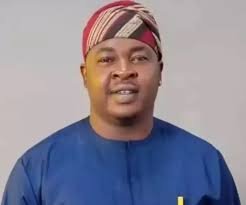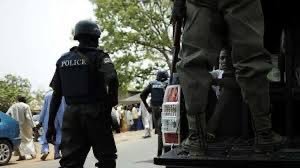One-time Governor of New York State, Mario Cuomo, it was who made the point that politicians tend to campaign in poetry and govern in prose. The American politician’s soundbite spoke to the grand and lofty promises office seekers make during those heady moments on the campaign trail. These sweeping statements of intentions hardly immediately materialize when the politician eventually gets the nod of the electorate to take the mantle of leadership. Like the road to the graveyard, the quest for power is most times replete with good intentions, which may end up manifesting as pains and anguish in the lives of the people.
Without doubt, the one-month old Nigerian Presidency led by Asiwaju Bola Ahmed Tinubu is already proving the truism in the assertion, which speaks to the struggle inherent in governing towards the fulfilment of lofty promises made during campaign periods. Although many accolades have come the way of the Nigerian leader on account of the tough economic decisions taken in the last 30 days, not much scrutiny has gone into the impact of those decisions in the context of the extreme poverty and vulnerability of millions of Nigerians. It is pertinent to recall that months ago, the National Bureau of Statistics released data to show that 133 million Nigerians were living in multi-dimensional poverty.
For long suffering citizens, who continue to experience the after effects of the multiple economic shocks occasioned by the years of slow economic growth induced by amateurish economic management under former President Muhammadu Buhari, two damaging recessions, a global pandemic, and the disastrous currency redesign, and its demonetizing impact on the economy, President Tinubu’s market-driven policies have precipitated more excruciating pains. Even though the President’s lieutenants are quick to say that such pains are temporary, they are actually not in the best position to talk about the issues objectively. All of the President’s image makers would be living at the expense of the public and would therefore never really feel the pains of the ordinary citizen.
READ ALSO: Spotlight On JAMB, As NISER Behavior Change Approach Rethinks Anti-Corruption Fight
From the removal of fuel subsidy to the imminent hike in electricity tariffs, the introduction of N1000 annual payment for confirmation of vehicle ownership and the plans that are afoot for the defunding of tertiary institutions, the complete takeover of Nigeria’s economic space by untamed and ubiquitous forces of the market is being projected as the silver bullet for the achievement of economic progress and advancement.
As expected, the armor bearers in the Tinubu Presidency have been quick in depicting him as the man who would finally address Nigeria’s fiscal woes. But the President and his sidekicks have offered little or no explanation to the public with regards to government’s clear cut approach to contain the poverty and destitution being precipitated by their policies. As things stand, the reality from the side of Nigerians does not paint the kind of rosy picture that the President and his minders have tried to project.
The reality today is that the cost of transportation has skyrocketed beyond the reach of citizens. Similarly, inflationary pressures caused by subsidy removal have left everyone writhing in economic pains. Transport costs have jumped so high that ordinary Nigerian workers are now resorting to sleeping in and around their offices to be able to cope with the prohibitive costs. For car owners too, the cost of fueling is leaving a massive dent in their finances, with a good number making the painful decision of parking their cars at home for the time being.
As if the escalating cost of transportation due to the removal of fuel subsidy is not a big enough economic issue to grapple with, all indications are pointing to an upward review of electricity tariffs by the electricity Distribution Companies (DISCOs).
Already, key stakeholders including the Nigeria Labour Congress (NLC) and the Manufacturers Association of Nigeria (MAN) have warned of the serious consequences the hike in electricity tariffs would have for businesses. With the way things are, small and medium scale businesses, especially those in the informal sector are facing a situation in which their very lifeblood is being squeezed out. Businesses, which are already struggling with a harsh climate, including the reality of multiple taxation and soaring alternative energy costs in the face of epileptic power supply, are being further stressed into their decline and ultimately their deaths. Added to the above is the CBN policy of free floating of the Naira, which has made the foreign exchange market become lot more volatile, just as it has further impacted inflationary trends.
For a president who promised during the campaign trail that his cardinal objective of his presidency is to “foster a new society based on shared prosperity, tolerance, compassion, and the unwavering commitment to treat each citizen with equal respect and due regard,” the pains of the last 30 days run antithetical. Similarly, contrary to President Tinubu’s solemn pledge in his manifesto to “train and give economic opportunity to the poorest and most vulnerable among us,” his decisions in the last 30 days have achieved the direct opposite. So too is the rallying cry of the President that he and his team seeks a Nigeria where “no parent is compelled to send a child to bed hungry, worried whether tomorrow shall bring food.” As many poor Nigerians would attest, that is exactly the reality they are faced with given how government policy has wiped out citizens purchasing power, while leaving the ordinary people to wallow in pains.
READ ALSO: Supersonic Speed: All Laws Signed by President Tinubu, Two Weeks Into Presidency
On the age-long issue of electricity, which has been a source of many woes to the Nigerian people, President Tinubu’s advertised line of action during his campaign was that his presidency would generate, transmit and distribute sufficient, affordable electricity to give Nigerians the requisite power to enlighten their lives, their homes, and their very dreams. As it stands, such a system to deliver stable and affordable electricity to Nigerians is not yet in place, yet the government has practically given the greenlight to the DISCOs to slam Nigerians with vexatious tariff hike. And then on security, one of president Tinubu’s refrain on the campaign trail was that his presidency would put in place what he described as a bold and assertive policy that will “create the strong yet adaptive national security architecture and action to obliterate terror, kidnapping, banditry, and all other forms of violent extremism from the face of our nation.” 30 days into the Tinubu Presidency however, the band of killers operating in several parts of the country continue to have a field day.
Of course, the President’s admirers would be quick to hush those who try to interrogate these issues with the retort that the government is still settling in. Nonetheless, it is apparent that Nigeria at this point need strong, consistent and courageous voices to interrogate President Tinubu’s agenda and the manner of its implementation. Fears are rife that if the civil society and other sources of alternative views do no wake up from their reverie to engage the government in a contest of ideas, the Tinubu agenda, including the most vicious manifestations of his policies will be pushed through. Some frontline civic groups are already picking up the gauntlet in what promises to be an important battle for the welfare and well-being of millions of Nigerians.
Some of them have been asking questions, which the Team Tinubu has failed to proffer convincing answers to; first is the question of why the President removed subsidy without an iota of thought for the most vulnerable citizens who are now facing the severest forms of poverty and destitution. Secondly, what does the government stand to achieve with yet another tariff hike in the electricity sector, even as the companies, which took over the sector continue to underperform and supply darkness to citizens?
Finally, many more critical voices have asked; when is the President going to unveil a comprehensive program of reform, which would lead to a drastic reduction in the cost of governance, and address the mindboggling waste and corruption, which have become drainpipes of public resources. In the words Comrade Dr. Ibrahim M. Zikirullahi, frontline activist and good governance campaigner, it is totally unacceptable for those who have converted the state to their personal fiefdom, and who live lavishly at the expense of the public to be the ones to dictate to the rest of Nigerians how they need to make sacrifices for the economic fortunes and stability of the country.
He said: “We therefore have to first demand that the political office holders asking the rest of the citizens to sacrifice, should firstly show what sacrifices they themselves have made as contribution to the economic stability of the country. If the Tinubu Presidency were to be acting in sincerity and with honesty of purpose, the hasty announcement of subsidy removal should have been accompanied with a comprehensive package of governance reforms, which would show to the public its readiness to drastically reduce the cost of governance and eradicate the sheer waste that characterize government expenditure.”
























